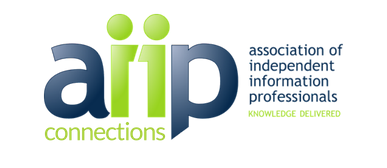Should You Get Niched?

Mary Ellen Bates
An evergreen conversation among AIIP members compares the relative benefits of being a generalist or specializing in a niche. I have reflected on this distinction and I think it is primarily a matter of how narrow a perspective I take.
When I started my business, I focused on providing business analysis to the telecommunications industry. I saw that as a fairly narrow niche; my approach was to be memorable and the only person my prospects knew who had that industry expertise. Pretty soon, though, I realized that my real specialization wasn’t that particular industry — it was my ability to scope out, research and analyze an industry and create a report that enabled my clients to make a decision.
I was able to see my more value-added role for my clients by stepping back and changing my mental focus. Instead of thinking about the specific reports I had done or the clients I had attracted, I thought about what next action I am enabling for my clients. (I facilitated the August Info Pro Café, during which we talked about how to describe our business in terms of why our clients hire us and what outcomes we enable. Members can see the slide deck and discussion summary here).
If you have just begun your business or if you are pivoting to a new market or service offering, and you are not sure what your prospective clients want, it can be tempting to accept any project and to promote yourself as a generalist and available for “anything.” If you do not have any client engagements yet, it is hard to get that larger focus to see what role you are playing in your client’s workflow. This requires a certain amount of reflection on what kinds of clients and client outcomes you are most drawn to as well as some informational interviews to establish the ground truth of your assumptions of those client outcomes.
When I am converting my generalist coaching clients into niche artists, the concerns that I often hear have been along these lines:
Why limit myself when I have lots of skills? The problem with that question is that it focuses on your skills, not your clients’ needs. Yes, you have lots of skills, but what specific client outcome are you enabling with those skills?
What if my clients pigeonhole me? When you focus on finding the highest-value service for your client, you become known for being a problem-solver, not just a contract worker who performs a certain task. When your clients value your expertise, they are more likely to ask you “I don’t know if you can do this but…” I view these queries as invaluable market intelligence; I can explore where I might want to expand my business.
Won’t I get more referrals when I offer a wide range of services? Clients are paying you for outcomes, not activities. Rather than focusing on a range of services to offer, you can emphasize the kinds of results your clients get. How you achieve those results may involve a variety of services, but your prospective clients are much more interested in how you would fit into their workflow and information context.
When you start thinking that you are a generalist, try taking a mental step back and see what your clients’ needs have in common, and how you can provide the highest-value solution.
Mary Ellen Bates has been an infopreneur since 1991. In addition to her business research and analysis services, she offers strategic coaching to new and long-time solopreneurs. See more at Reluctant-Entrepreneur.com or call/text her at +1 303 772 7095.





